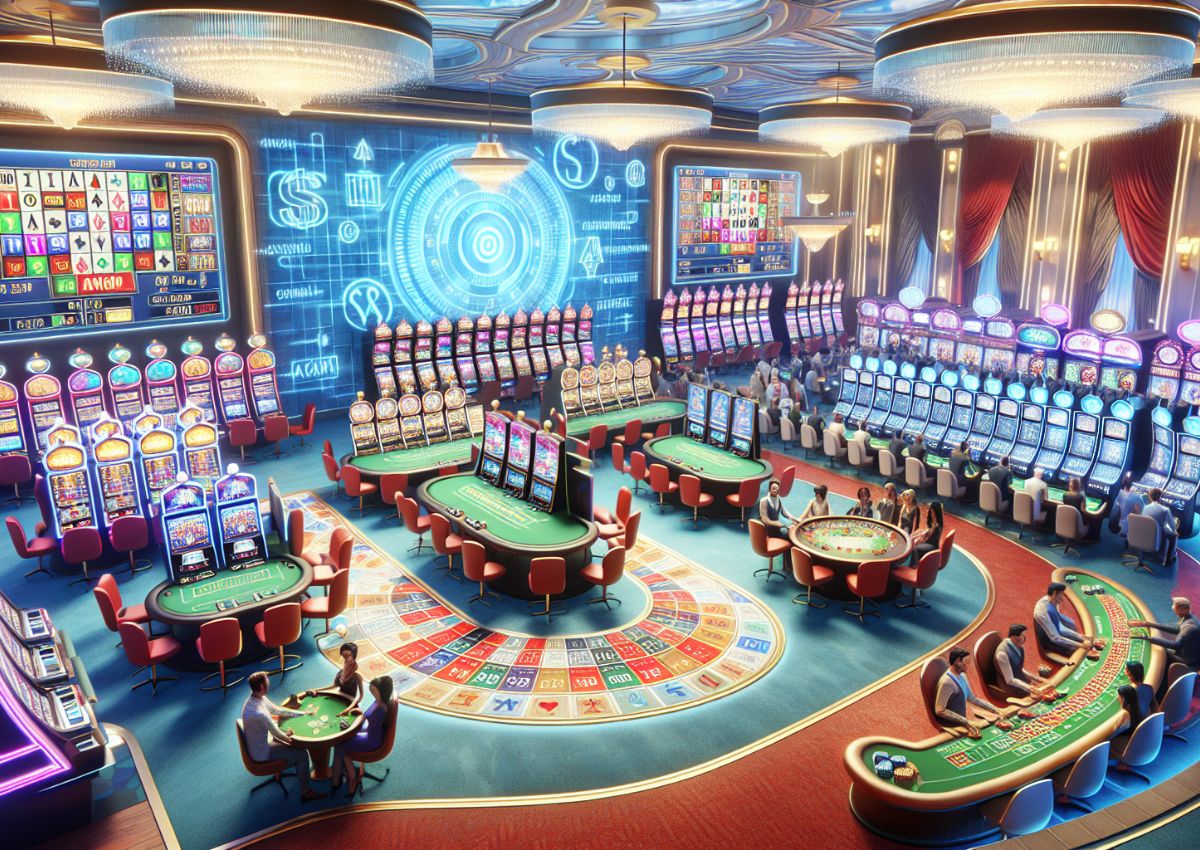
Gambling games have long been a captivating source of amusement, drawing millions of players from different cultures around the globe. From the glitzy casinos of Vegas to the busy gambling halls of the Chinese gambling capital, these games serve as a common thread that brings together people across different backgrounds. The allure of fortune, skill, and risk entices not only those seeking to win money but also those looking for a sense of community. https://32win.global/
The significance of casino games extends well beyond the gaming floor. They often embody the social norms and traditions of the societies in which they flourish. Games such as poker, blackjack, and roulette have integrated into the mosaic of popular culture, influencing various aspects from movies to clothing. As we explore this intriguing intersection of chance and life, we can better understand how gambling games shape and are influenced by the environment surrounding us.
Chronological Progression of Gaming Games
The origins of gambling games can be tracked back to old cultures, where gambling in multiple forms was extensively practiced. In China, around 2300 B.C., a variant of gambling known as Keno was popular, while in historic Rome, soldiers would frequently wager on the results of their matches. The concept of using randomness for fun and gain progressed over the centuries, leading to the creation of more organized games. By the late Middle Ages, betting houses began to appear in Europe, particularly in Italy, which brought forth early forms of well-liked games still practiced today.
As gambling gained popularity in Europe, the 17th and 18th centuries saw the emergence of gambling establishments as dedicated locations for gaming. The initial official gaming venue, the Ridotto, was founded in the city of Venice in the year 1638, featuring games like Baccarat games and Faro. This period marked a crucial shifting point, as casinos commenced to draw not just the wealthy but also the expanding middle-income class. The refinement of activities grew, leading to the development of new rules and versions that improved the gaming experience.
In the 19th century, the era of industrialization and shifts in social standards further altered the environment of casino activities. The introduction of roulette and contemporary one-armed bandits drew a larger clientele, and gambling establishments became seen as legitimate forms of entertainment. This era witnessed the globalization of gambling, as gambling houses extended from Europe to the Western Hemisphere, culminating in the development of the famous Las Vegas Boulevard in the 1900s. The evolution of gambling games has continued into the modern era, incorporating modern technology and digital services, allowing them available to a worldwide market.
### Cultural Relevance within Different Societies
Casino activities have deep-rooted social significance within a multitude of communities throughout the planet. For instance, in Las Vegas, the very core of the urban landscape is woven around gaming venues, where gaming is not just a pastime but a fundamental aspect of social engagement and community life. The dazzling lights and dynamic atmosphere attract millions, showcasing how casino games can influence local economical structures and cultural identities. This setting transforms the notion of leisure into an enriching experience that affects fashion, melodies, and even film.
In contrast, some communities treat betting with greater care, viewing it through the lens of ethical beliefs and heritage. For example, in many Eastern cultures, games like Mahjongg and Pai Gow are full of history and possess significant social meanings. These games are often played during get-togethers and festivities, fostering collective connections and reinforcing family ties. The act of engaging in these games goes past mere amusement, reflecting principles such as deference to seniors and the significance of shared enjoyment.
Simultaneously, in continental countries such as Monte Carlo and Rome, games of chance serve as symbols of luxury and refinement. The elegant atmosphere of these venues attracts both tourists and native inhabitants, upholding a sense of distinction and exclusivity. The art of the game of poker and the strategic elements of games like the game of baccarat are esteemed, shaping social dynamics and creating an allure that enthralls a heterogeneous audience. This highlights how gambling can simultaneously reflect and influence cultural attitudes towards danger, gain, and relationship building.
Financial Influence and Tourism
Gambling activities play a crucial role in the financial context of many regions, particularly those that rely heavily on visitor traffic. The revenue produced from casino operations fuels local economies, creating jobs not only within the casinos but also but also in related sectors such as hospitality, restaurant services, and entertainment. This influx of tourists, drawn by the attraction of games and the overall gaming environment, stimulates spending across multiple local enterprises, contributing to the economic vitality of the region.
The presence of casinos often leads to the development of infrastructure, including hotels, public transit, and recreational facilities. These improvements are essential in enhancing the overall visitor satisfaction, making locations more appealing to tourists. Additionally, many casinos contribute in local communities through support of events and philanthropic initiatives, further embedding themselves into the social fabric of the locality. Such contribution not only supports economic growth but also fosters a positive reputation of the gambling sector.
Furthermore, the global popularity of casino games drives tourism competition, with regions vying to attract gamblers from across the globe. Iconic destinations like Las Vegas and Macau have become synonymous with casino culture, drawing millions each year. This competitive edge encourages creativity and variety within the gaming industry, influencing trends in leisure and hospitality that resonate beyond their limits. The ripple effects of this visitor influx extend far, impacting local financial health and cultural exchanges on a global scale.
